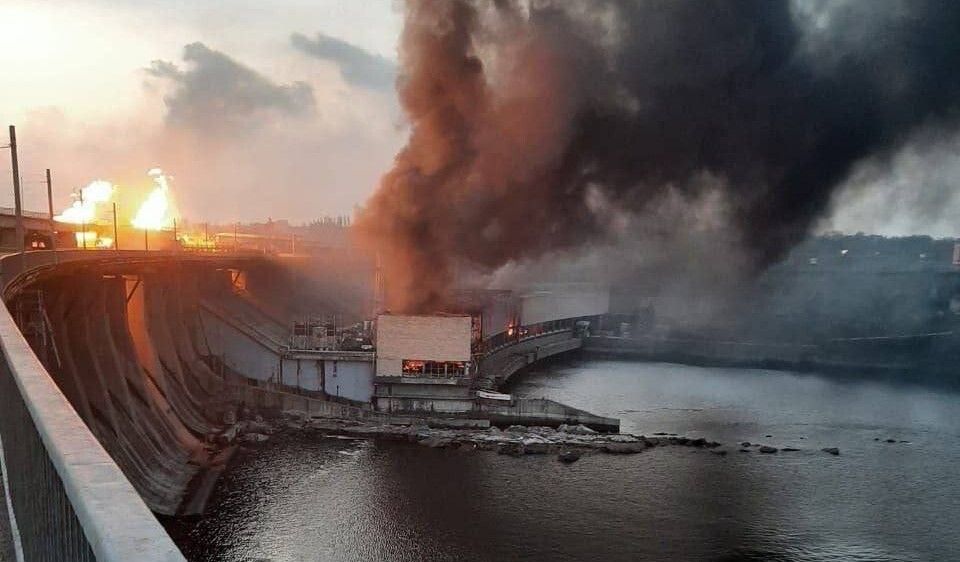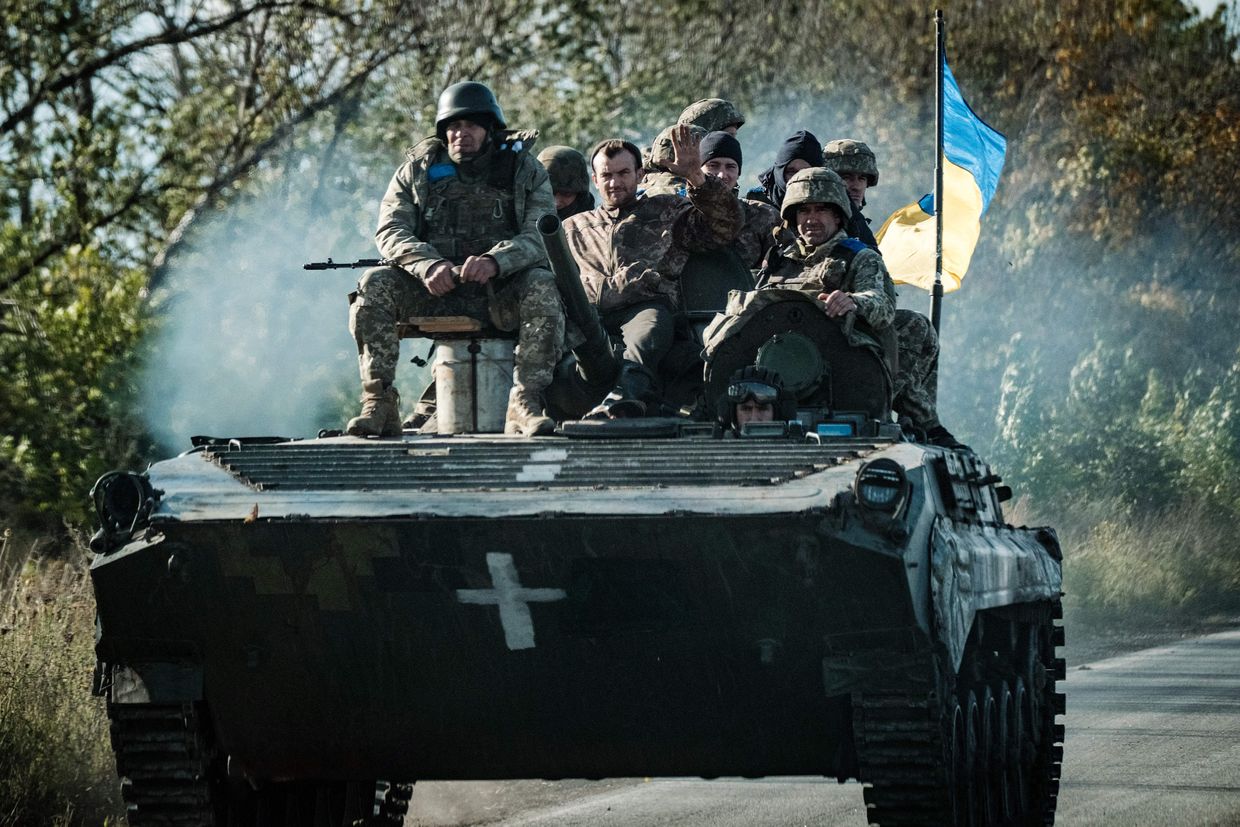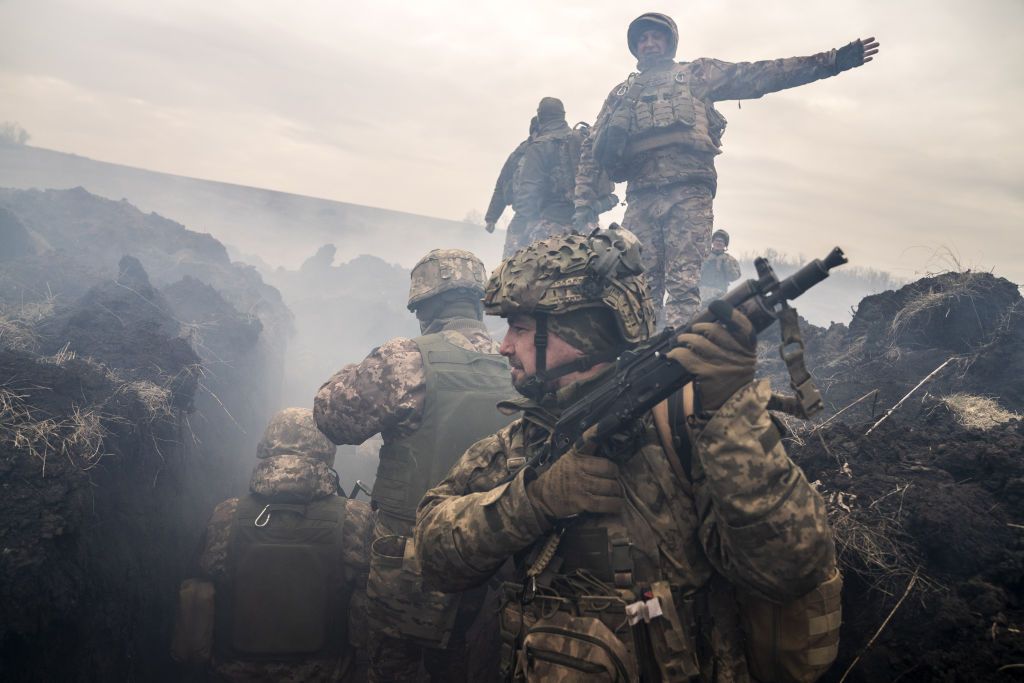Russia intensifies attacks on Kharkiv, draining Ukraine's air defense and civilian morale

The aftermath of Russian attack on Kharkiv on March 27, 2024. (Oleh Syniehubov/Telegram)
Russian troops on March 27 attacked Kharkiv, killing a 59-year-old man and injuring 19 people, including four children. This was the first time since 2022 that Russian troops used a glide air bomb, reportedly a new-type UMPB D-30 munition, to strike the city.
Kharkiv, Ukraine's second-largest city, located just over 30 kilometers (18 miles) south of the Russian border, faces near-daily attacks.
Only within the last month, Kharkiv has been struck around ten times with missiles, drones, and now air bombs, suffering from severe damage to civilian infrastructure, as well as having an increase in the number of casualties among locals.
"And these attacks will continue," Victor Kevlyuk, an expert at the Center for Defense Strategies, told the Kyiv Independent.
President Volodymyr Zelensky called on the West to provide more air defense systems to Ukraine, following Russia's attack on the city.
But considering the proximity of the border, air defense systems will not be efficient as long as the Russian army can easily reach the city with ground-based fire, Kevlyuk said.
According to him, Russian troops must be pushed away at least 80-100 kilometers (50-62 miles) to create a "safe zone" in Kharkiv Oblast.
"We can set Patriots in this (Kharkiv) zone, and it could be lost in two days. What should we do next then?" Kevlyuk said, referring to the fact that the sophisticated air defense systems are not designed to take part in close-range combat.
Targeting energy infrastructure to demoralize civilians
On March 22, Russia conducted the biggest attack on the country's energy infrastructure since the beginning of the full-scale invasion, striking Kharkiv, among other cities.
Russian troops launched S-300 anti-aircraft guided missiles and Iskander-M ballistic missiles at Kharkiv, causing a severe power outage in the city. Disruptions in water and heating supplies were also reported, as well as the full stop of electric transport, including the metro.
Kharkiv Mayor Ihor Terekhov said on national television that the local thermal power plant (TPP) and all the electrical substations were destroyed or damaged. According to Kharkiv Oblast Governor Oleh Syniehubov, the restoration of local energy infrastructure is a task "not for weeks, but for months."
Russia's final target is not an energy infrastructure as such but people's morale during this period of full-scale invasion, when heating and electricity are not so vital, as well as the undermining of Ukraine's air defense systems, according to Kevlyuk.
"The enemy aims not to destroy Kharkiv but to deplete Ukraine's aid defense systems," the expert added.
Federico Borsari, fellow at the Center for European Policy Analysis (CEPA), said the intensification of attacks on Kharkiv, including its energy infrastructure, could also damage Ukraine's military capabilities.
"Hitting energy infrastructure can impact the activities of the military, also considering the Ukrainian Armed Forces' highly digitized C2 structure, which requires a constant power supply to work smoothly," Borsari said.
He said that Russia could prepare for a new potential offensive in the area, considering the latest mass attacks on the city.
Will Russia try to seize Kharkiv again?
Ukraine's Center for Countering Disinformation dismissed reports about Russia's preparations to launch a new offensive against Kharkiv, saying that Moscow currently "does not have the resources" for such an operation.
Kevlyuk agreed with it, recalling Russian losses in its offensive in Avdiivka and Bakhmut, which are far smaller compared to Kharkiv.
"It will be needed to gather all the Russian troops in Ukraine at least to surround Kharkiv. It is impossible (for now). The mathematical modeling shows that Russia does not have enough units near Kharkiv and will not create anything in half a year," Kevlyuk said.
Borsari, on the contrary, thinks that there are indications suggesting Russia may attempt a new offensive in Kharkiv "sometime in the next few months," exploiting the lack of ammunition and manpower plaguing Ukrainian forces.
According to Borsari, the February assessments put the number of Russian troops between the Kupiansk and Lyman axes at around 110,000, along with more than 1,000 tanks, 2,000 armored fighting vehicles, 700 artillery systems, and almost 500 Multiple Launch Rocket Systems (MLRS) in the same area.
"While the overall strength of single (Russian) units may be far from ideal – thus confirming understaffing issues – these numbers would be enough to mount a new offensive," he said, adding that these numbers will not guarantee success on all axes in light of Ukrainian additional defenses currently being built.
Kevlyuk still remains skeptical about Russia trying to move deeper into the Kupiansk sector of the front line, saying that in the near future, Moscow would most likely focus on assaults near the villages of Chasiv Yar and Novomykhailivka in Donetsk Oblast.
He also noticed that Russian forces were attempting to move further to Siversk in the Bakhmut district in Donetsk Oblast.
"Russia will be attempting to create preconditions for the summer offensive in the direction of the Sloviansk and Kramatorsk agglomeration during the spring," Kevlyuk said.












